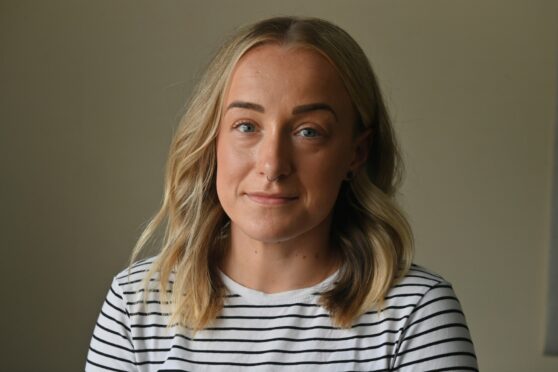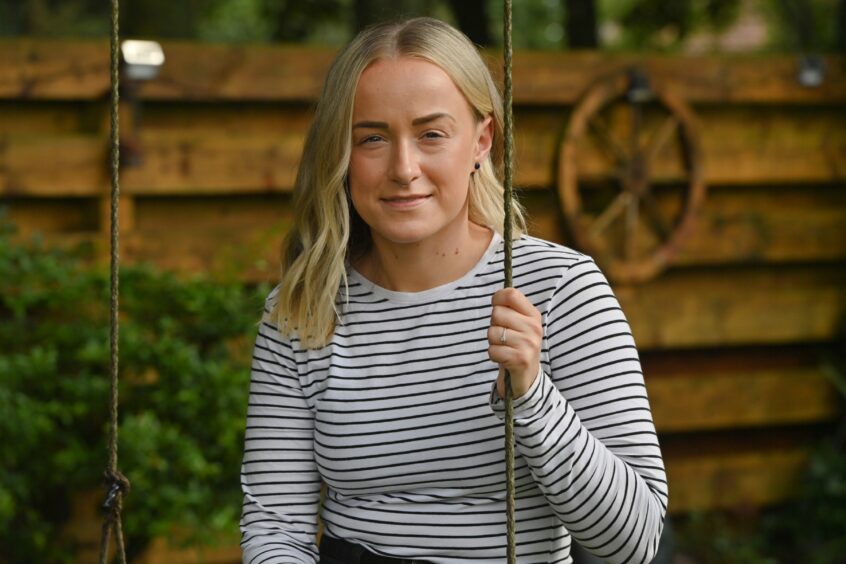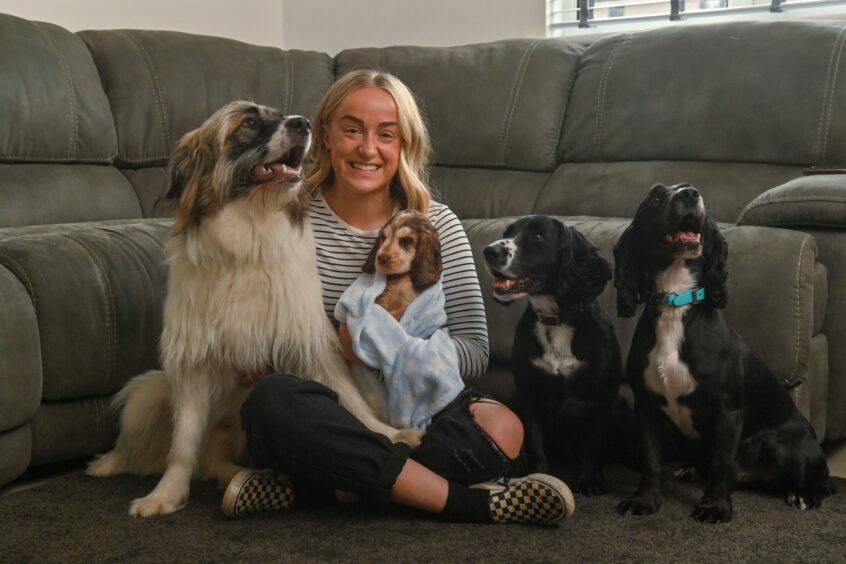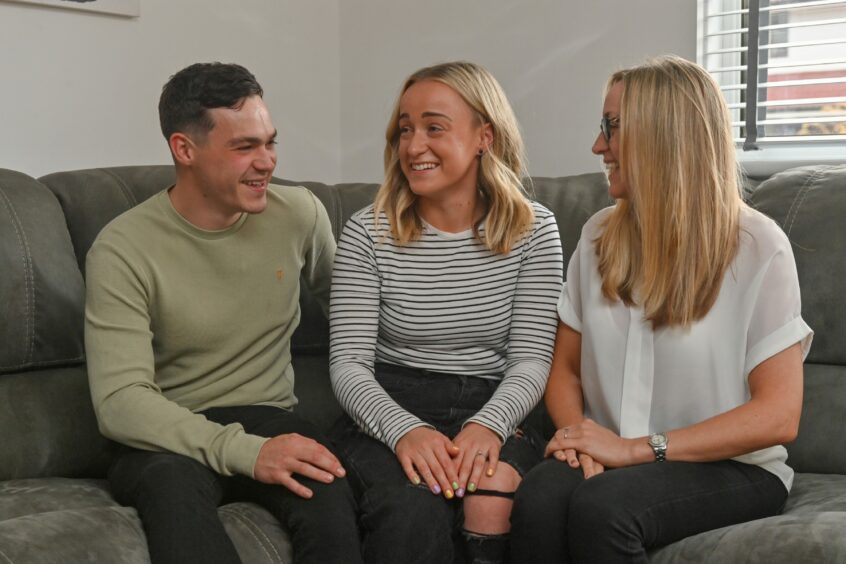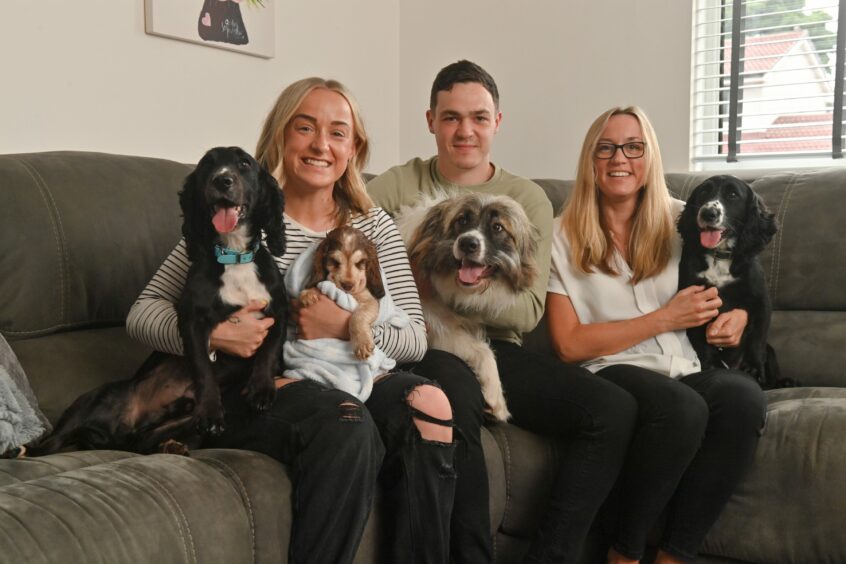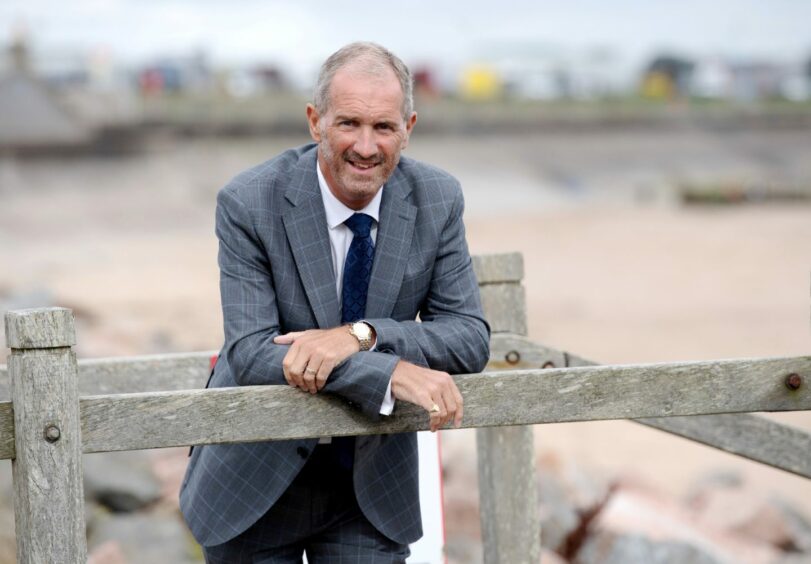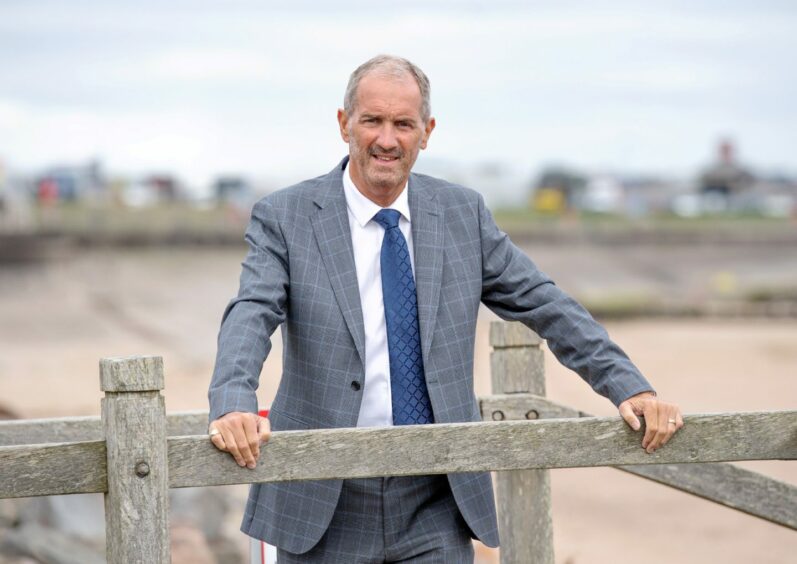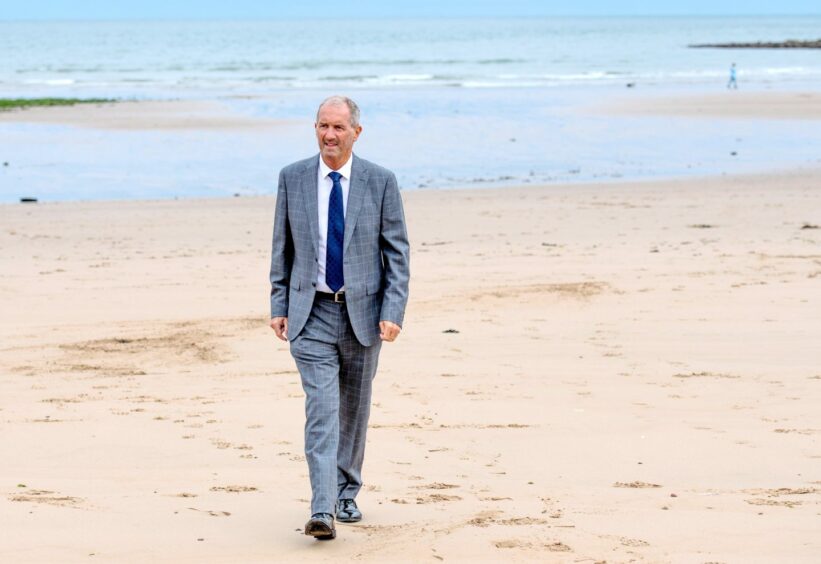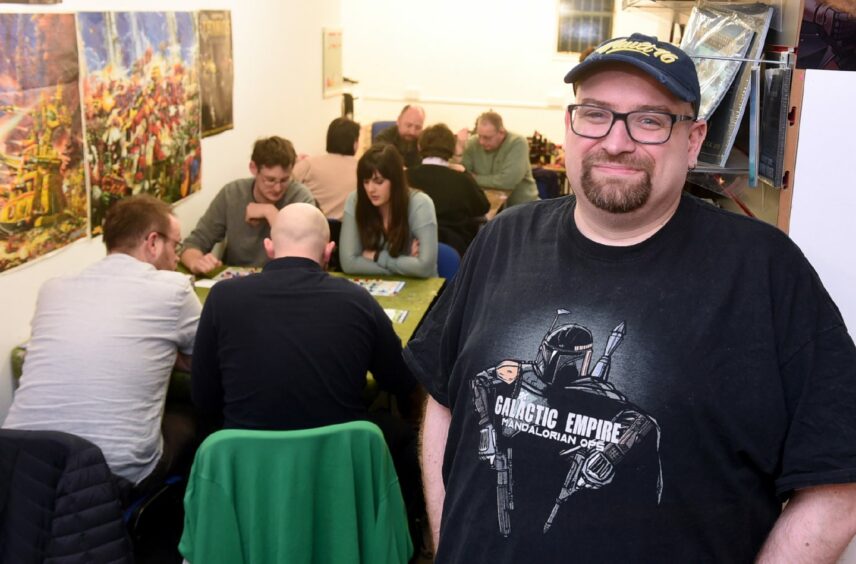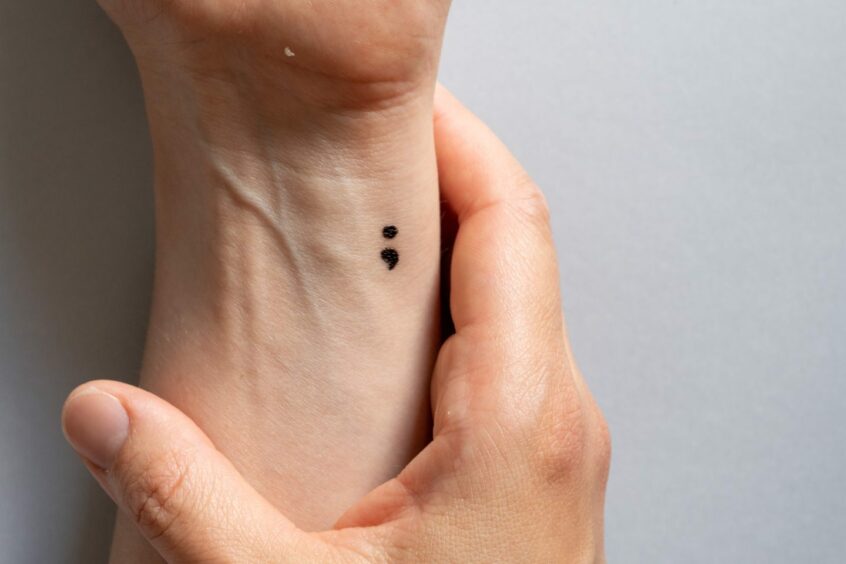“I knew I didn’t want to wake up.”
It is difficult to believe that 26-year-old Jess Logue once felt this way.
Exhausted from the daily battle raging in her head, Jess did not set out to take her own life.
But the attempt seemed the only way in which to find any kind of peace from the darkness which had slowly been descending for several years prior.
Jess, who was a personal trainer at the time, was already on a long waiting list after seeking help for anxiety and obsessive compulsive disorder (OCD).
But having been forced to wait three years, Jess could no longer manage her symptoms alone.
She had reached breaking point, but did not mention her intentions to anyone.
It has been nearly two years since her boyfriend, Danny, left for work, only to return home for lunch because he felt something was not quite right.
Thankfully, he found Jess in time, and she has since received help from the Scottish self-harm charity, Penumbra.
I remember immediately afterwards, I had these feelings of frustration
The couple, who have been together for seven years, are now making plans for their wedding, and have their hands full with their four adorable dogs.
Jess credits the unwavering support of Danny, her mum, and of course four wagging tails, with helping her on her mental health journey.
I am still allowed to be here and to try again at life
She has spoken to Your Life magazine as we help raise awareness surrounding World Suicide Prevention Day, which sees Samaritans campaign with more than 70 other suicide prevention charities and mental health groups – in a bid to ask governments in the UK and Ireland to make suicide prevention a priority.
In 2021, 753 deaths by suicide were recorded.
That’s 753 people who had somehow reached a point of such pain – where ending it was preferable to seeing dawn break.
We have chosen to focus on something gloriously simple: hope.
Here, we speak to those who set out to take their own life, but are still with us today.
We have also spoken to the founder of a remarkable mental health movement which could change the way mental health is approached in the workplace.
One more breath, one more heartbeat, one day more.
Jess Logue: ‘I want people to know there is hope’
Jess and Danny’s home in Countesswells, Aberdeen, is filled with mementos of their life together.
Pictures from the weekend they got engaged, just prior to Jess running the London Marathon.
And of course the excited woofs of Murphy and Toby, who are working cocker spaniels, Paddy the Romanian rescue dog, and Frankie, who is just eight weeks old.
This is a happy home, a place of second chances if you consider the life Paddy may have been subjected too, alongside Frankie who was born with his front paw missing.
Now working as a beautician and trainee canine hydro support therapist, Jess believes her path to healing has not been straightforward.
“After it happened, I didn’t go to A&E for any kind of medical attention. I didn’t want to be sectioned,” says Jess.
“My mum was in contact with my GP, who said I could only remain at home if I wasn’t left alone.
“So my mum and Danny did it in shifts at the beginning.
“It’s all a bit of a blur, but Danny came home for lunch because he felt something was wrong.
“I believe mum and Danny had been talking, because I can just remember them cleaning me up and helping me get into fresh PJs.
“Then we had the chat – what now?”
Jess finally received the help she needed, but it was not a case of feeling instantly better.
“I remember immediately afterwards, I had these feelings of frustration,” says Jess.
“Then I felt so disappointed, how could I do this to my mum and Danny?
“I just cried, and then I asked my mum to let the dogs upstairs.”
Following support from Penumbra, Jess still has bad days but finds she is able to manage them much better.
The fact she is still here today has also been portrayed via a semicolon tattoo on her hand.
The design can often be found on fellow survivors, and is part of a huge movement called Project Semicolon.
The symbol is used when an author could have chosen to end their sentence, but chose not to.
The author meaning the person, and the sentence translating as their life.
“My advice to anyone would be please don’t stop fighting,” says Jess.
“Try again, there is always hope.
“I think it is a common theme that people don’t get the help they need, until an attempt has been made.
“That’s partly because our mental health services are over-run.
“I’ve learnt that life isn’t like a game of Mario Cart, where you get three lives and that’s it.
“Attempting to take my own life does not make me any less of a person.
“Now I am very open about it, I have learnt that everyone is going through something.
“I am still allowed to be here and to try again at life.
“If you muck up, you don’t run out of chances.”
Jim Grimmer: ‘There is still fear and reticence’
From working in CID to a career in oil and gas, Jim Grimmer has seen it all.
And having recently received the all clear against cancer, Jim also knows what it’s like to face tough circumstances in life.
The former cop is determined to change the way we view mental health in the workplace, having founded his own social enterprise, P3 Business Care.
Rather than discuss mental health with HR, which Jim believes many people shy away from for fear of being viewed as not able to do their job, staff can talk to business partners from P3.
The team visit the workplace twice a week, and can signpost to different levels of support in situations such as addiction, debt and relationships.
The support is also available for immediate family of the staff member, and Jim believes this approach means issues can be identified before a person reaches crisis point.
We need to be asking, have you had suicidal thoughts?
Jim, who is Aberdeen born and bred, spent 20 years in the police force, and was also awarded the Iraq Reconstruction Medal – following a year located in the Maysan Province of Iraq, mentoring the new Iraqi Police Service on behalf of the UK Foreign & Commonwealth Office.
I’ve seen it so many times, it’s the person you least expect
Whilst his CV may be impressive, Jim is incredibly down to earth.
“Having worked in the oil and gas industry after I left the police force, and certainly from my experience, I know that people can be reluctant to open up to HR,” says Jim.
“Within that industry at least, it’s for fear that they could end up on the next round of redundancies.
Jim, who believes that suicide is still incredibly prevalent, has also recently attended a course via ASIST, Applied Suicide Intervention Skills Training.
It consists of a two-day interactive workshop in suicide first aid, and teaches participants to recognise when someone may have thoughts of suicide – and work with them to create a plan that will support their immediate safety.
“I think often people don’t even want to mention the word suicide, for fear that the person they are speaking to may then consider it,” says Jim.
“But we need to be having that conversation and challenging that person.
“We need to be asking, have you had suicidal thoughts?
“Have you thought about how you might take your own life?
“Often, people have. And that’s when prevention can be put in place.
“I’ve seen it so many times, it’s the person you least expect.
“The guy who seems to have it all. The big house, marriage and nice car on the driveway.”
Jim believes that through going out to the workplace, the team can be more proactive in identifying issues.
He has recently worked with Borr Drilling, a company based in Westhill, but can help businesses across the UK.
“There is no pressure to engage, but I think I spotted the need for P3,” says Jim.
“We may not be trained counsellors, but we can help people access that kind of support.
“Whatever you might be needing, say the help of Macmillan.
“I’ve got the empathy in that department, after I was diagnosed with cancer which spread to my lymph nodes.
“I was also very ill with pneumonia, and had 30 sessions of radiotherapy before receiving the all clear.
“I think there is still fear and reticence to vocalise that someone you knew and loved took their own life.
“There is a lot of difficulty on that subject, but we need to persist.”
Kit Wright: ‘I wrote letters to my loved ones’
Kit Wright has often encouraged others to talk, having run a thriving game shop in Aberdeen’s Rosemount for six years.
But with people often sitting close to each other around tables for games, the shop fell victim to the pandemic and social-distancing rules.
Kit, who is 42 and has two children, has since retrained as an infrastructure engineer.
And having overcome sepsis earlier this year, he’s clearly good at adapting to the many curve balls of life.
The call came out of the blue, and it stopped me in my tracks completely
But a small semicolon tattooed on his thumb is a reminder that Kit has also learnt how to manage his mental health.
Having recently discussed his tattoo with his kids, who are age 13 and 12, Kit is proud to speak openly about his mental health and how far he has come.
“It was around Christmas time of 2016, and it was my first Christmas without the kids, having separated,” recalls Kit.
“I had actually been speaking to a counsellor for depression, and I was working through a few things.
“But then everything just came to a head.”
Kit made plans to take his own life, from writing letters to making sure there was a note of login details, so that “everything could continue”.
But a chance phone call halted his plans.
“I got stopped just before I did anything,” says Kit.
“My wee boy phoned me, he must have been around seven or eight at the time.
“The call came out of the blue, and it stopped me in my tracks completely.”
Although there have been bumps along the way, Kit believes he is now in a much better place.
He has found that writing things down can be a game changer.
“I was once in a restaurant when someone recognised the semicolon on my thumb,” says Kit.
“They said good for you, and I thought that was pretty cool.
“I think a lot of men in particular hide their mental health, I’ve talked to a lot of people about this.
“I always say, even if you just write down everything that’s going on in your head.
“The danger is the toxic environment inside your own mind, get those thoughts out in whatever way you can.
“I still think about that day in 2016, but it doesn’t dominate anything.
“It’s more so what would have happened if I was no longer here, the things I would have missed.
“I can walk my daughter down the aisle.
“If that’s something she ever wants me to do, I will be there in a second.”
Where to turn for help
Samaritans is available 365 days a year. Call any time, day or night on 116 123.
Scottish based charity Breathing Space can be contacted on 0800 83 85 87.
For more information about Applied Suicide Intervention Skills Training (ASIST) visit https://prevent-suicide.org.uk
And to find out more about P3 Business Care, call 01224 472 516 or visit www.p3businesscare.com
